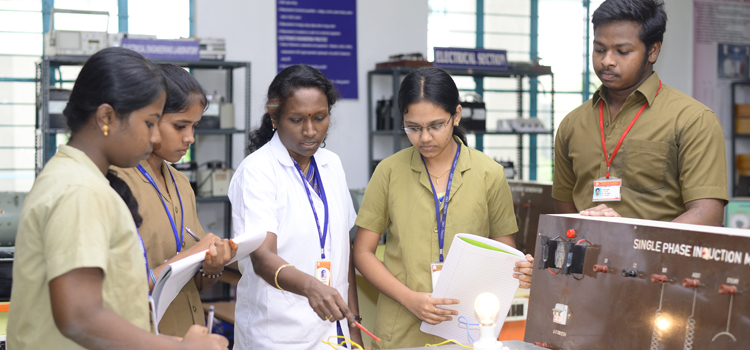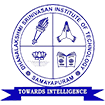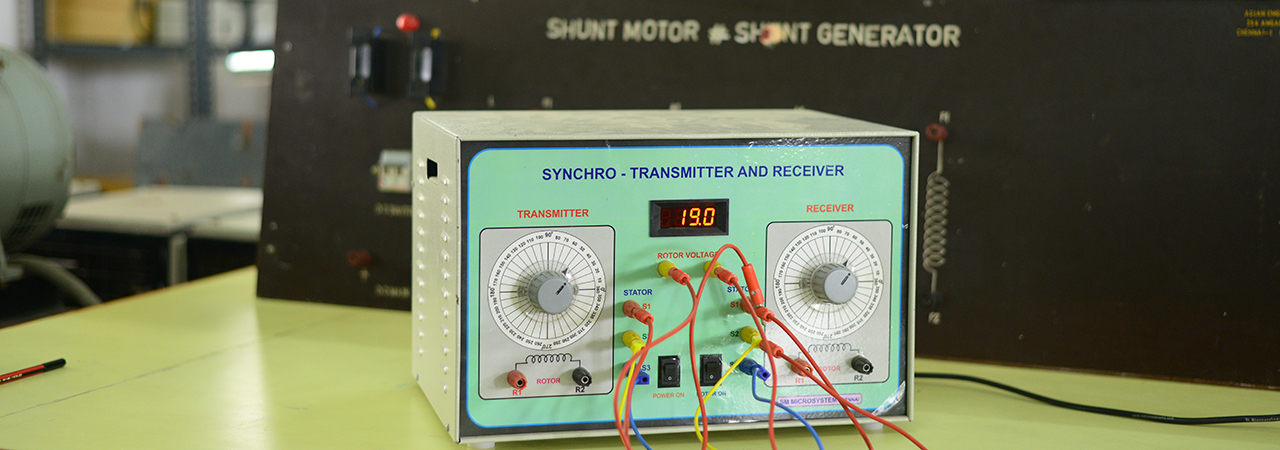About the Department

Dhanalakshmi Srinivasan Institute of Technology was established in the year 2012 under the aegis of Srinivasan Health and Educational Trust whose members have had consummate experience in the fields of education and industry. It stands out as a leading center of higher learning with a mission of pursuing excellence in education and research. DSIT provide a variety of stimulating environments for intellectual development, free thinking, and personal growth, challenging its students with dynamic learning opportunities and equipping them with the skills, insights, attitudes and practical experiences that are necessary to take up responsibilities in the society. DSIT students will find an academic and social environment where everyone- from faculty members to peers help shape their future. With so much to offer, it is only natural that students of DSIT get a unique opportunity to carve a niche for themselves in their chosen field of study that enables them to become well-rounded and discerning citizens, fully qualified for their chosen professions in the workplace.
About Our Department
In the 1880s, Thomas Alva Edison invention of the light bulb signaled the beginning of the electrical era. After this seemingly miraculous electrical illumination came the electric motor , telephone , telegraph , motion pictures and radio and today ,the computers. Electrical & Electronics Engineering is a science that studies elementary particles, smaller than the atom , called electrons. A bachelors degree in Electrical & Electronics Engineering serves as a starting point for careers in many fields. Electricals & Electronics Engineering serves as a starting point for careers in many fields.
Electrical & Electronics Engineering help design, develop, test and manufacture electrical and electronics equipments, radar, industrial and medical monitoring or control devices , navigational equipments and computers .Job responsibilities include specification, design, development and implementation systems as well as research to create new ideas.
The Electrical and Electronics Engineering Department has well equipped laboratories. Also have well experienced faculties committed to impart quality education to students and preparing them to meet the challenge of the emerging and competitive scientific world.
Department Profile
The Department of Electrical and Electronics Engineering We have a leading edge teaching facility and state-of-the-art laboratory facilities to enhance the learning experience of the students. The department develops the analytical and practical skills of students to serve better industrial, organizational and research set ups.
We provide individual attention and world class quality of education. We have a team of highly qualified, experienced and dedicated faculty to impart quality education to the students. The Department has been accredited by NBA (National Board of Accreditation).
EEE LABORATORY The EEE department is equipped with the following Labs
- Electrical Machines Laboratory
- Electric Circuits laboratory
- Electronics Laboratory
- Power Electronics Laboratory
- Control Systems and Instrumentation Laboratory
- Microprocessor and Micro controller Laboratory
- Power System Simulation Laboratory
- Engineering Practices Laboratory
Programme Educational Objectives (PEOs)
- PEO 1: Graduates of the Programme will have successful technical or professional career.
- PEO 2: Graduates will demonstrate core competence in Electrical and Electronics Engineering and leadership qualities in their chosen fields of employment.
- PEO 3: Graduates will continue to learn and sadapt in a world of constantly evolving technology.
Programme Outcome (POs)
- PO1: Engineering Knowledge: Strong foundation in core Computer Science and Engineering, both theoretical and applied concepts
- PO2: Problem Analysis: Identify, Formulate, Ability to apply knowledge of mathematics, science and engineering to real-life problem solving and reaching validated conclusions related to computer science.
- PO3: Design/Development of solutions: Ability to analyze, design, model, and develop complex software and information management systems that meet the specified needs with appropriate consideration for the public health and Safety and the cultural societal and environmental considerations.
- PO4: Conduct Investigations of Complex problems: Ability to use research– based knowledge and study methods including analysis, design, coding implementation, testing and interpretation of data, to provide valid Conclusions.
- PO5: Modern Tool Usage: Convention of recent techniques, modern engineering and IT tools with an understanding of the limitations.
- PO6: The Engineer and Society: Apply Reasoning informed by the contextual knowledge to assess societal, health, safety, legal and cultural issues and the consequent responsibilities relevant to the Computer Science and engineering Practice.
- PO7: Environment and Sustainability: Understanding the impact of Computer Science and Engineering solutions in the societal and human context.
- PO8: Ethics: Understand and apply professional ethical responsibility
- PO9: Individual and Team Work: Ability to function effectively within teams in Software projects.
- PO10: Communication: Ability to communicate effectively, both in writing and oral makes effective presentations to provide and obtain clear instructions.
- PO11: Project Management and Finance: Demonstrate knowledge and understanding of the engineering management principles and apply these to one’s own work, as a member and leader in a team, to manage projects and in multi-disciplinary environments.
- PO12: Life-Long Learning: Recognize the need for and have the preparation and ability to engage in independent and life-long learning.
Programme Specific Outcome (PSO)
- PSO1: To scrutinize the scoop of solar power system in collaboration with power systems in ingenious, pioneering and challenging environment, for the research based team work.
- PSO2: To hike through the scientific theories, ideas, methodologies and the new cutting edge technologies in renewable energy engineering, and use this erudition in their professional development and gain sufficient competence to solve the current and future energy problems universally.
- PSO3: To endowed the knowledge of technologies like PLC, process controllers, SCADA, transducers and HMI and design, install, test, and maintain power systems and industrial applications.




